Cats spray urine to communicate with other cats. When a cat sprays, it lifts its tail straight up and shoots a stream of urine, sometimes quite a distance, generally on vertical surfaces.
Urine marking is how cats claim their territory or send warnings to other cats to back off. Spraying also lets other cats know if a cat is available for mating. Both male and female cats can spray, although urine spraying is more common in male cats, especially unneutered male cats.
Why Do Female Cats Spray?
Cats use scent to “talk” to other cats. Cats can learn a lot about other cats by smelling their urine. Though urine is pungent and generally sends a clear message, cats also spread their scent in other ways.
Any time your cat rubs her cheek against an object she’s leaving behind her pheromones for other cats to “read.” Scratching is another marking behavior cats use to communicate with other cats. Cats have scent glands in their paws. When a cat scratches, she leaves behind pheromones as well as claw marks.
In addition to spraying, cats may also urine-mark by squatting. When a cat starts peeing outside the litter box, one way to tell if a cat is actually spraying is the location of the urine.
When cats spray urine, it’s usually onto a vertical surface like a wall, the arm of a couch or when outside, a tree. If you see a stream of urine dripping down the wall it’s most likely spraying. If you find a puddle on the floor or bed or other horizontal surfaces, it usually means the cat was squatting when she went.
When cats squat, it can be difficult to tell if a cat is spraying urine for behavioral reasons or just having accidents outside the litter box (inappropriate urination or inappropriate elimination).
Why Do Cats Spray?
Cats that are not spayed or neutered are more likely to spray. Unneutered male cats and unspayed female cats spray to let cats of the opposite sex know they are ready and able for mating.
Male cats are more known for spraying urine to mark their territory, but some female cats also spray to claim territory. Although cats that spray for behavioral or sexual reasons are more likely to do so if you have other cats in the house or if stray cats are wandering around your yard, some cats spray even when there are no other cats around.
Do Female Cats Spray When in Heat?
Female cats do not typically spray when in heat. Unlike male cats, female cats are more likely to exhibit behaviors such as increased vocalization, restlessness, and affectionate gestures during their heat cycle. Spraying is a behavior more commonly associated with male cats marking their territory.
Also Read: Cat In Heat: Signs, Symptoms & Care
Any cat, male or female, might spray if they are stressed or upset, whether due to other pets in the household, moving, new human family members, or any number of other reasons. Illness, pain and litter box avoidance can also cause a cat to spray.
Common reasons cats spray include:
- Marking territory
- Mating behavior
- Fighting amongst household cats
- New pets or people in the home
- Litter box avoidance
- Illness
- Pain
- Stress
Do Female Cats Spray after Being Fixed?
Spaying may significantly reduces the likelihood of spraying behavior in female cats. After being fixed, the majority of female cats experience a decrease in hormonal influences that drive territorial marking. As a result, spayed female cats are less likely to spray compared to their unaltered counterparts.
How To Stop A Female Cat From Spraying?
In addition to spraying, cats mark their territory by rubbing their scent glands against objects, leaving pheromones behind.
It’s extremely important to consult with a veterinarian any time a cat is having going outside the litter box. Inappropriate elimination behavior (urinating or defecating outside the litter box—including spraying urine) often means the cat is sick or experiencing pain.
Whether a cat suddenly starts spraying or having other accidents in the house, or has been spraying for a long time, a visit to the vet is in order to rule out a medical issue. The veterinarian will conduct a complete physical exam and might recommended a urinalysis and/or bloodwork to make sure the cat is not suffering from a urinary tract infection or any other medical condition that might be causing the spraying.
If your cat gets a clean bill of health from the vet, you can assume the spraying is behavioral.
Here are some steps you can take to prevent spraying, listed in order of importance:
Spay Or Neuter Your Cat
Spaying or neutering your cat is one of the best ways to stop spraying. Although not all cats will stop spraying after they are fixed, it can help immensely in many cases.
Also Read: How Much Does It Cost Spay or Neuter A Cat?
Older cats that have been spraying for a long time are more likely to keep spraying after being spayed or neutered, but many cats will stop or significantly reduce the behavior.
Thoroughly Clean Up Old Cat Urine With An Enzymatic Cleaner
Clean your cat’s litter box at least once every day. Regular, consistent scooping is the single most important part of keeping your cat’s litter box clean and preventing litter box avoidance.
Cats will return to the scene of the crime if they can smell even the smallest trace of urine. Carefully clean all places your cat has sprayed using an enzyme-based pet cleaner specifically formulated to neutralize urine odor.
Overhaul Your Litter Box Setup
Cats can be very particular about where they go to the bathroom, including the cleanliness of their box, its placement, the type of litter, and other considerations. Make sure you have at least one litter box per cat in your house, plus one extra.
This means a family with one cat should have two litter boxes, and a family with two cats should have three boxes. Place the boxes in convenient locations so your cat doesn’t have to roam too far to find a box. Use an unscented, soft, clumping cat litter and clean out the box at least once a day (twice a day is better!).
In Multi-Cat Households, Reduce In-fighting Between Cats
If your cats aren’t getting along, do what you can to encourage peace and make your cat feel safe. Feed cats separately in different rooms so they don’t have to fight over the same bowl. Make sure your cats have safe places to retreat if they want to get away from another cat, such as a cat tree, kitty tent or even a quiet room.
Encourage a peaceful coexistence by offering special treats (separately) when the cats are in the same room. If your cats continue to fight, consult a board-certified veterinary behaviorist (your veterinarian can provide a recommendation).
Use A Pheromone Product Like Feliway
A pheromone diffuser is a great way to calm a nervous cat or help soothe a cat going through a difficult transition.
Pheromone sprays, collars and diffusers release pheromones that are intended to calm cats, making them feel less stressed. Pheromones can be helpful for cats that are spraying for behavioral reasons.
More Help For Cat Spraying
When a cat sprays, it holds its tail straight up, sometimes quivering it.
Cat spraying is one of the most frustrating and challenging behaviors to overcome. If your attempts to address your cat’s spraying are not working, you have a few other options. First, talk to your veterinarian about the problem.
Vets will sometimes prescribe certain anxiety medications, which in some cases may help reduce or eliminate spraying. You can also consult an animal behaviorist.
Animal behaviorists are specially trained to identify and treat the most difficult animal behavior problems, including urine spraying behavior in cats.
Some animal behaviorists are also veterinarians (they have a DVM or VMD title after their name), and can also prescribe medications and treat other medical problems in your cat. To find an animal behaviorist, ask your veterinarian for a referral or check out the Animal Behavior Society’s online directory here.
Frequently Asked Questions
Do female spayed cats spray?
Any cat can spray, including male cats or female cats, and spayed females or neutered males. However, spraying is more common in male cats, especially intact (unneutered) males.
Do female cats spray when in heat?
It is not uncommon for unspayed female cats to spray when in heat. Spraying is a way of letting any male cats nearby know that she is around and available for mating. Spaying your cat is the best way to stop mating behaviors like spraying.
What age does a female cat start spraying?
Uncommon in kittens, urine spraying is more often seen in adult cats. Because spraying is often linked to mating behaviors, female cats may start spraying any time after they reach sexual maturity, which is around 6 months of age. Similarly, male cats may start spraying around the time they are 6 months old. For this reason, veterinarians recommend that all cats are spayed or neutered before they turn 6 months old.
Do female cats mark their territory?
Although it’s more common for unneutered male cats to mark their territory, female cats may also spray to mark their territory, especially if a new cat joins the household or if an outdoor cat begins to visit the yard. Additionally, male or female cats may spray for other reasons than marking territory, including illness, pain, stress or litter box avoidance.
Why is my female cat spraying all of a sudden
A sudden onset of spraying behavior in a female cat may indicate stress, changes in the environment, or underlying health issues. It is advisable to consult with a veterinarian to rule out any medical concerns and to address potential stressors or changes in the cat's surroundings that might be causing the sudden spraying behavior.
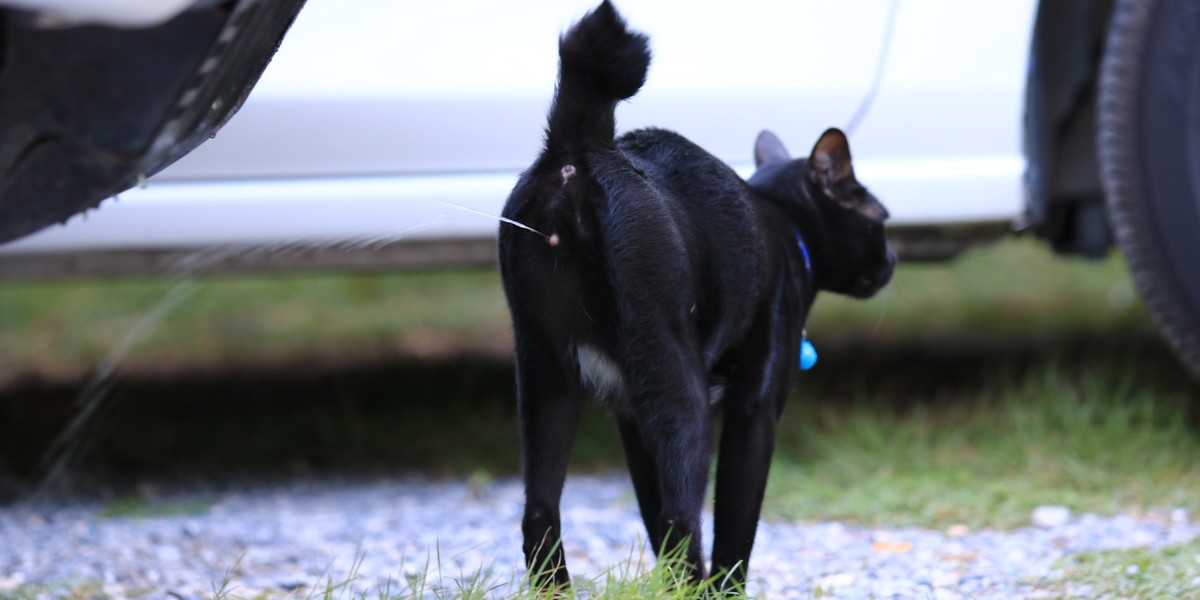
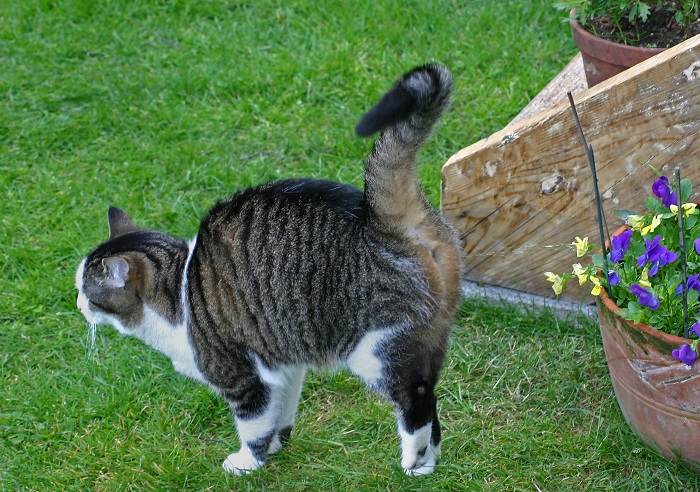
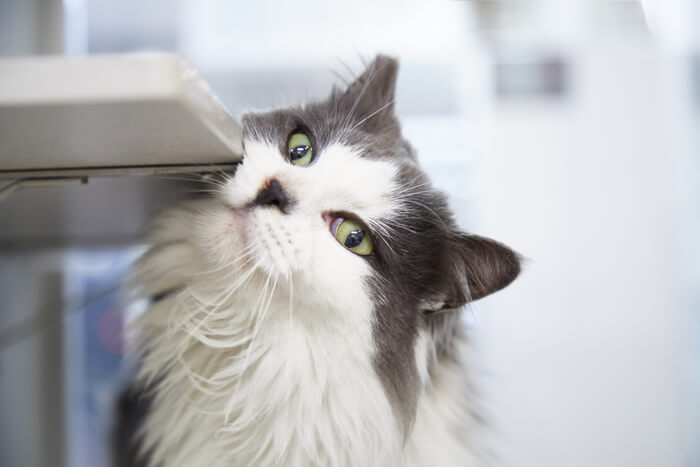
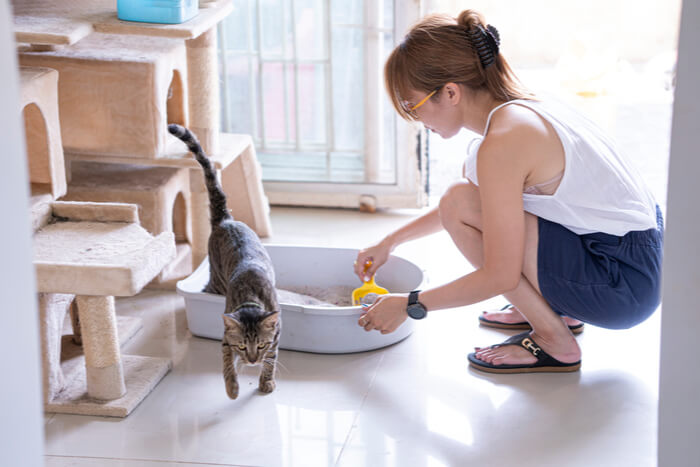
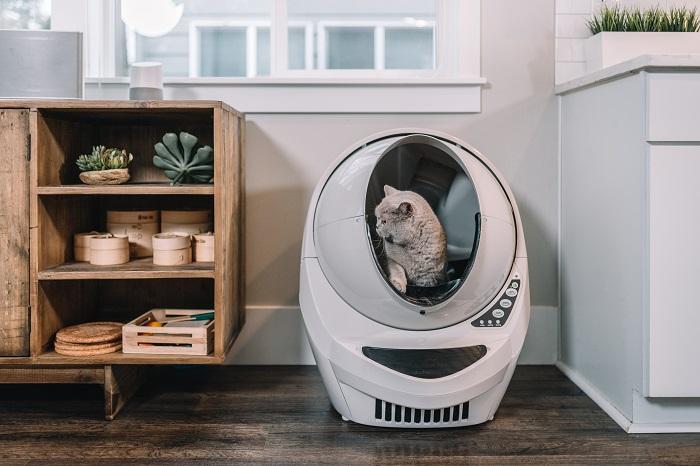
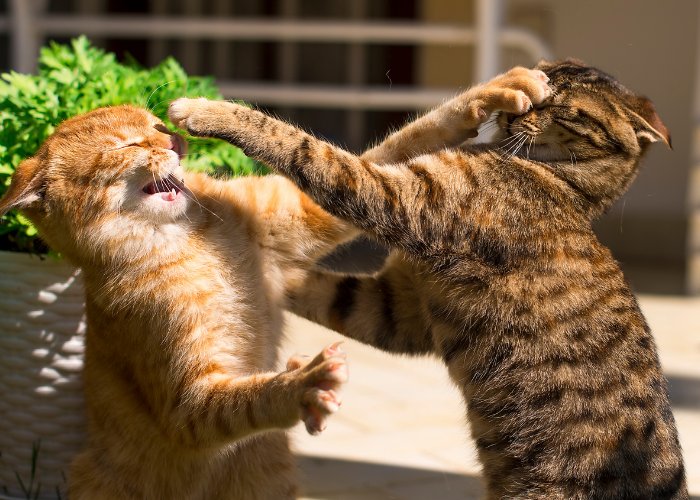
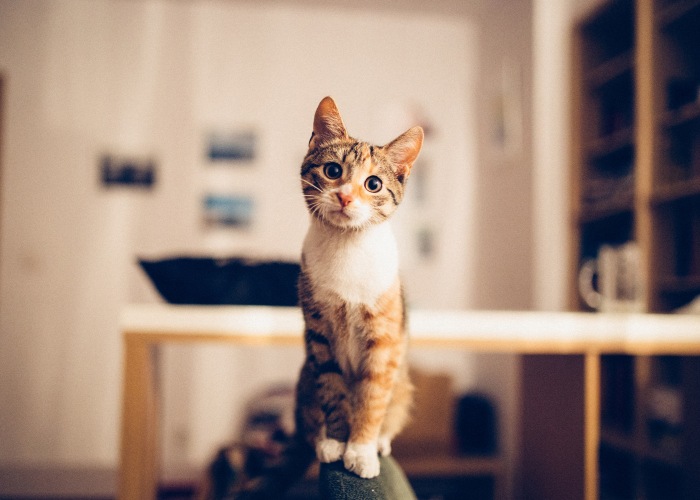
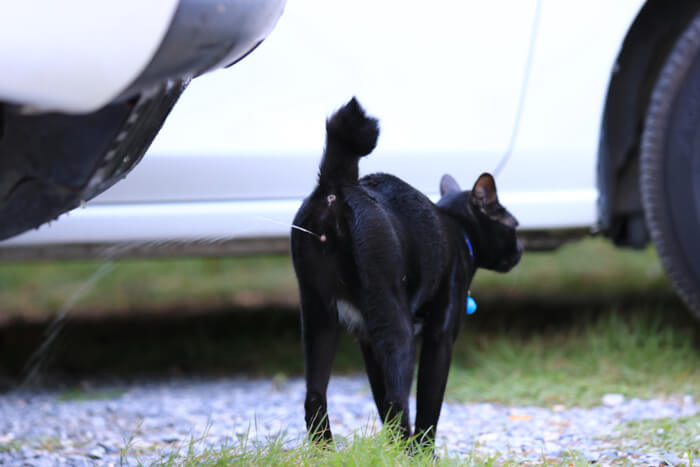

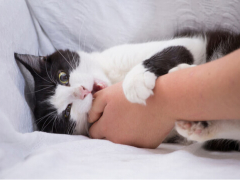


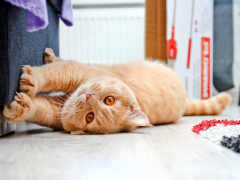


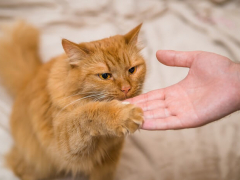
I have a 15 year old cat with dementia and high blood pressure. Currently she will not take the med on her own mixed in wet cat meat. How can l get it in her? She hates to have it given to her orally.
She’s still very lovey dovey, likes to eat, and play, but l wonder how her dementia will affect her as it gets worse.
in the sections titled Why Do Cats Spray? and Do female cats spray when in heat? you are using the word “unsprayed” but the correct word would be “unspayed”
Oh my goodness, thanks for making us aware of this goof. I’ll correct it right away.